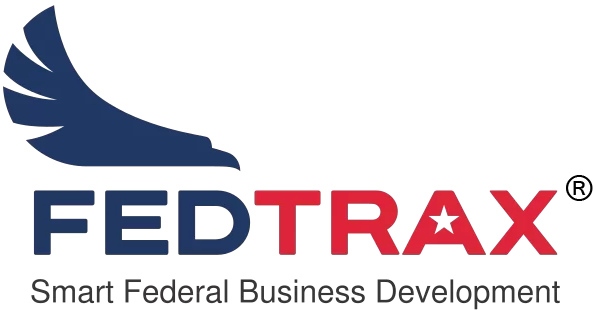
Anyone engaged in selling, be it a salesperson or a business owner that promotes her own company, wants to develop new business from new and existing clients. Unfortunately, most sales professionals lose the sale before they even make their first sales calls, and don’t even know why, because they don’t follow an effective sales process and build a sales plan. They instead attribute it to a numbers game they can only control by knocking on more doors, knowing eventually they’ll get to the C-Suite. Well people, in my brain, my closure rate is to number of calls as margin is to gross sales—I’d rather call on half the prospects to get the same numbers.
Sales is a process, a neatly choreographed sequence of events that lead from early stages of trust building to the eventual close. These steps are called advances in the process, and depending upon what you sell and to whom, they will vary in their time, effort, and even the need to happen at all. I’m talking about the complex, high-value sale where decisions are not made impulsively, capital buckets tend to be tapped, and both company and personal credibility are put to the test.
The first part of the sales process is the initial sales call. I don’t mean the lead trolling call, but the one that occurs after the prospect has given you the valuable benefit of a meeting or a 15-30 minute telephone conversation. I call this the Discovery call, and this stage is where most of your sales are usually lost.
Sales Process Rule #1: Be Prepared
Woody Allen famously once said, “80% of success is showing up.” Well, in the hackneyed Pareto-principal world that businesses operate in, that’s exactly what many salespeople do for their first call—just show up. “After all,” you may think, “I know my stuff, have years of experience and have been trained in Sandler (or SPIN, or any other sales methods), and work best when responding to prospects in the moment.”
Fatal error. Whether you’ve ever been a Boy Scout or had children in the program, you should know that the motto Be Prepared applies to more than carrying strike anywhere matches, a compass and a rain slicker in your backpack. By designing a concise, effective sales plan, you’ll increase the chances of successfully completing that first critical advance toward a sale by 100% or more, and you haven’t even spoken a meaningful word to the prospect yet.
Here are six key sales process focuses for preparation that are time more than well spent before your first sales call:
Know Your Outcome
You’ve likely been exposed to the success literature that says that fewer than 5% of people have a clear picture of where they are going in the form of written goals. I’d wager those numbers are similar for most sales people going into the first call. Mike Schultz & John Doerr in the Rain Selling blog say that if you don’t know what you want to get out of the meeting, don’t bother getting out of the car!
So at the end of this discussion, what do you want to happen? It may well likely vary in specifics depending upon the situation and the person you’re calling on, although every sales person is looking to make some kind of advance in the sales process.
Are you trying to re-up and existing contract? Get referred to the real person inside the company that can use your solution? Cast doubt on an incumbent vendor? Many times the goal is to discover more specifically areas of trouble that the prospect company has where your solution is a match and to schedule a subsequent meeting. Think in terms of what should happen next. What will your homework be that indicates a successful outcome? More importantly, what should your prospect’s homework be to signify the right advance?
Write it down! If the call goes to plan, this is what you will be asking for at the end of it.
Know Your Prospect
Are you talking to a decision-maker, or a gatekeeper who can say no but ultimately, not yes? You may not ever know this up front before the meeting or even after, but by doing some research on LinkedIn, you can usually find out title and responsibilities listed in his profile, and many times the names of others at the company that may be important (People Also Viewedalong the right hand margin of his profile). Of course if you get to discovering some serious opportunity, you’ll do your top sales job while on the call of asking who else besides him is necessary to make these type decisions.
In addition to business stature, you can also make use of personal information for rapport building during the initial sales call. Points of common reference are always key to lowering trust barriers. Perhaps you were referred by another person that gave you some inside baseball information. LinkedIn helps here too, usually letting you know the college she graduated from, user groups that she’s in, and past awards and recognition, as well as potentially showing you articles, papers or videos that the person may have been a part of. These are all an important part of the sales process as icebreakers, for no other reason than to show you made the effort to find out about her. In the Harvard Business Review, Steve Martin highlights the personal receptive state as the first thing needed to establish initial rapport, and to plan in advance how you might go about establishing that state.
Know the Domain
Domain knowledge is another key to the sales process. Even if your firm does not segment its clients by vertical target market, the prospect on an initial call will expect you know some information about his industry and its issues. You don’t have to be as expert as he is, but you must be conversant.
What are the major industry challenges? What has been recently newsworthy about the market? Who are the principal, primary vendors of goods and services in the area that your company operates? What are the key esoteric terms and jargon that is used? What laws govern the behavior of the prospect’s company?
Knowing what you don’t know is the most important thing to evaluate, and then to determine if it will be relevant to your conversation, and if so, research it.
Know their Situation
Clearly you won’t know all of the prospect’s discreet issues before the call, and that is the primary purpose of discovery in the sales process, yet any advance knowledge that you can learn or assume and then verify on the call will warrant you for consideration of any potential available business. You may know what existing systems and incumbent competitors that this firm may be using, or at least be able to have a narrow set of options for most market segments. By searching Google and the Twitterverse for the company name, you can quickly see recent news headlines about the that you can bring up to not only show your thorough preparation and level of seriousness, but perhaps as a jumping off point to explore a challenge that you may be able to solve. Make a note of any that you deem relevant in your pre-call sales plan
Anticipate Challenges
By having a good idea what the person’s major challenges or pain points may be, you go a long way toward steering a conversation into areas where you may be able to shine. This research again is easy to do and for major sectors of the economy, is generally available in business news on almost a daily basis. You can make a safe bet that health care providers are grappling with the Affordable Care Act (Obamacare) mandates and constant changes. How might this affect cash flows? Morale? Payables? For the utility companies, perhaps it’s big data collection and analysis from SmartMeters.
The easiest place to learn potential less-obvious industry challenges are your existing customers that are in the same line of work. What are the last 3 things you helped comparable companies address? Chances are the prospect is either facing them or in some way has overcome them. In either case, you knowing those challenges provide a great steering mechanism for the conversation and establishes credibility for you personally.
Prove Your Worth
Case studies or other references that align either to the prospect’s specific industry niche or to the anticipated challenges she may be facing are priceless tools to have in advance. For instance, if your research reveals that there is mass M&A activity in the marketplace and that this prospect’s company has likely been affected by that, you might want to have references that you can speak to where you helped bring order from chaos of multiple system integrations in similar circumstances. These are particularly effective if your firm already has them documented on the company website and you can point to a link or pull out copies when the time is right. Proof sources like these demonstrate that not only have you done your homework and have a solid idea of what the prospect’s problems are, but that your company has valuable experience and deserves to be at the table when addressing them.
Look, you can’t know everything about your prospect before a sales call and nor should you. SNAP Selling author and sales strategist Jill Konrath echoes that there is nothing to fear by not knowing everything. You can know just enough, however, to double your chances of advancing the sale and growing your income.
